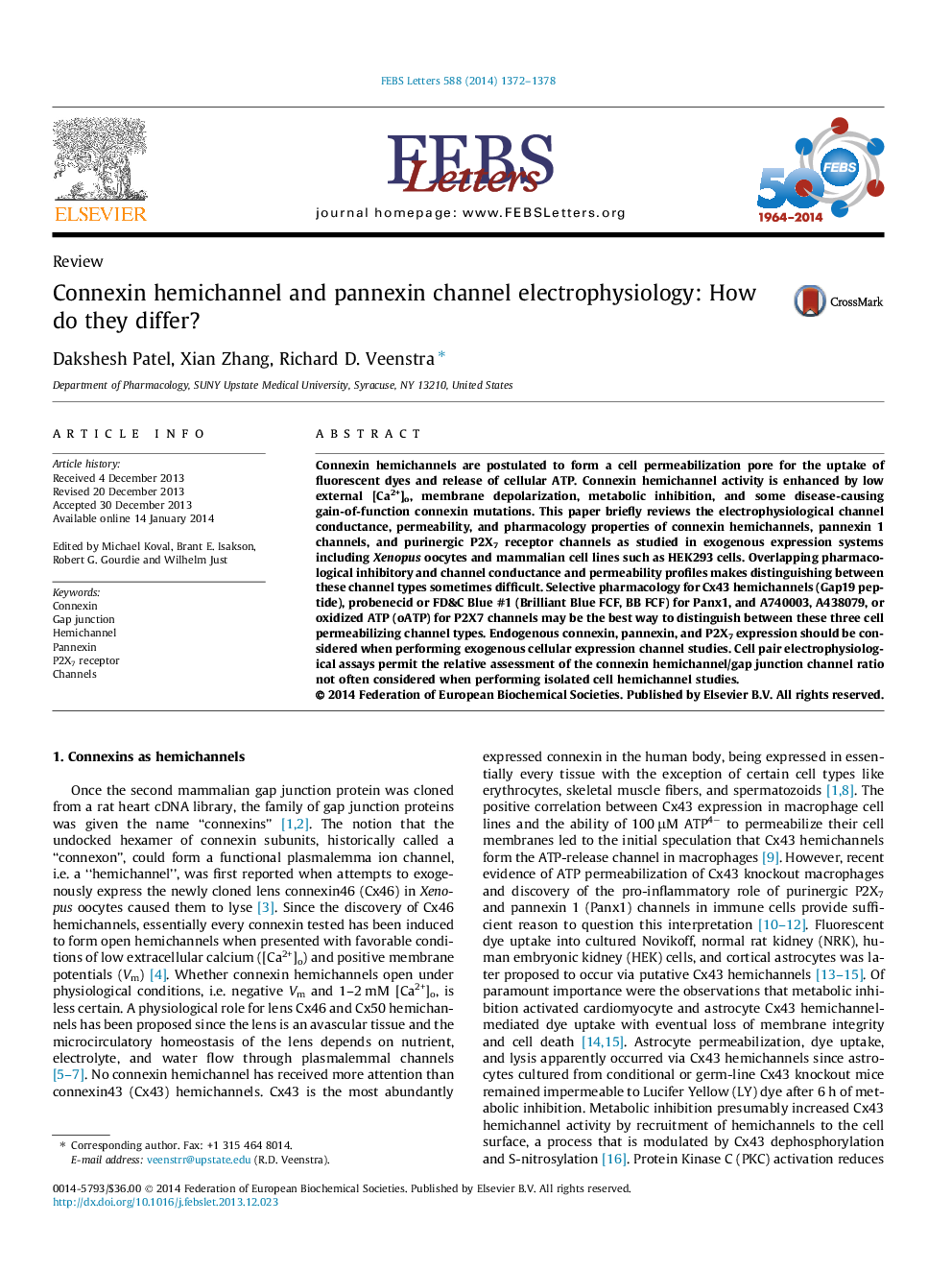| کد مقاله | کد نشریه | سال انتشار | مقاله انگلیسی | نسخه تمام متن |
|---|---|---|---|---|
| 10870693 | 1074018 | 2014 | 7 صفحه PDF | دانلود رایگان |
عنوان انگلیسی مقاله ISI
Connexin hemichannel and pannexin channel electrophysiology: How do they differ?
دانلود مقاله + سفارش ترجمه
دانلود مقاله ISI انگلیسی
رایگان برای ایرانیان
کلمات کلیدی
موضوعات مرتبط
علوم زیستی و بیوفناوری
علوم کشاورزی و بیولوژیک
دانش گیاه شناسی
پیش نمایش صفحه اول مقاله

چکیده انگلیسی
Connexin hemichannels are postulated to form a cell permeabilization pore for the uptake of fluorescent dyes and release of cellular ATP. Connexin hemichannel activity is enhanced by low external [Ca2+]o, membrane depolarization, metabolic inhibition, and some disease-causing gain-of-function connexin mutations. This paper briefly reviews the electrophysiological channel conductance, permeability, and pharmacology properties of connexin hemichannels, pannexin 1 channels, and purinergic P2X7 receptor channels as studied in exogenous expression systems including Xenopus oocytes and mammalian cell lines such as HEK293 cells. Overlapping pharmacological inhibitory and channel conductance and permeability profiles makes distinguishing between these channel types sometimes difficult. Selective pharmacology for Cx43 hemichannels (Gap19 peptide), probenecid or FD&C Blue #1 (Brilliant Blue FCF, BB FCF) for Panx1, and A740003, A438079, or oxidized ATP (oATP) for P2X7 channels may be the best way to distinguish between these three cell permeabilizing channel types. Endogenous connexin, pannexin, and P2X7 expression should be considered when performing exogenous cellular expression channel studies. Cell pair electrophysiological assays permit the relative assessment of the connexin hemichannel/gap junction channel ratio not often considered when performing isolated cell hemichannel studies.
ناشر
Database: Elsevier - ScienceDirect (ساینس دایرکت)
Journal: FEBS Letters - Volume 588, Issue 8, 17 April 2014, Pages 1372-1378
Journal: FEBS Letters - Volume 588, Issue 8, 17 April 2014, Pages 1372-1378
نویسندگان
Dakshesh Patel, Xian Zhang, Richard D. Veenstra,